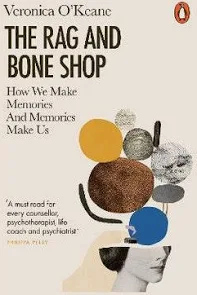The merging of knowledge and experience can happen because we have a multi-tiered brain memory system, where new experience is held in the plastic hippocampus, the memory maker, and gradually integrated into the less plastic, more consolidated cortex. Current experience and memory are integrated in the complicated networks of the prefrontal cortex, the storyteller. At the highest pinnacle of this complexity, memory is consciously manipulated in imagination. At this level, memory can be worked without external sensory input, and this faculty can be used to form new patterns of thinking, to imagine and create, to modify one’s understanding of the world…
 I’ve been fascinated by brain science for years now, ever since the research about things like psychoneuroimmunology (how’s that for a big word?) and neuroplasticity have been popularised in accessible mainstream books like Norman Doig’s The Brain That Heals Itself and When the Body Says No by Dr Gabor Mate. I think I’ve wanted learn about myself, really; how my brain creates the mind that creates my sense of a self. How both the good stuff like creativity and sensitivity and problem-solving, and the not-so-good like stress, anxiety, and physical and emotional pain, struggle and wrestle and battle it out… I was going to write “in my head”, but of course that’s not the case. The brain is not for thinking! We’re not a robot body controlled by a computer brain. We are our bodies, irreducibly so. (And yes, it’s hard to get your head around that idea). As Dr Veronica O’Keane writes, “The fundamental point that we cannot make memories without sensation may be so familiar to us that we are blind to it. It is difficult to believe that it took many hundreds of years to understand the now self-evident fact that the five senses bring information to the brain so that one can learn and categorize information and ultimately form a coherent sense of the world”.
I’ve been fascinated by brain science for years now, ever since the research about things like psychoneuroimmunology (how’s that for a big word?) and neuroplasticity have been popularised in accessible mainstream books like Norman Doig’s The Brain That Heals Itself and When the Body Says No by Dr Gabor Mate. I think I’ve wanted learn about myself, really; how my brain creates the mind that creates my sense of a self. How both the good stuff like creativity and sensitivity and problem-solving, and the not-so-good like stress, anxiety, and physical and emotional pain, struggle and wrestle and battle it out… I was going to write “in my head”, but of course that’s not the case. The brain is not for thinking! We’re not a robot body controlled by a computer brain. We are our bodies, irreducibly so. (And yes, it’s hard to get your head around that idea). As Dr Veronica O’Keane writes, “The fundamental point that we cannot make memories without sensation may be so familiar to us that we are blind to it. It is difficult to believe that it took many hundreds of years to understand the now self-evident fact that the five senses bring information to the brain so that one can learn and categorize information and ultimately form a coherent sense of the world”.
The Rag and Bone Shop: How We Make Memories and Memories Make Us adds another layer of information. It’s science-y, but not dry. Actually, it’s beautifully done. Dr Veronica is a fine writer, who combines personal reflection with her medical explorations, as well as literary references – like Marcel Proust, Samuel Beckett and John Berger – and stories from her years of practice with all kinds of people, from new mothers with post-partum psychosis caused by birth and pregnancy hormones, to non-verbal ‘locked in’ psychotics whose lives are transformed by the right medications. If I ever need a psychiatrist, I would love to have a Dr Veronica. She sounds thoughtful, compassionate and kind; she writes about her patients as if they’re real people with real lives, not just illustrative case histories, and her medical and scientific focus still leaves her alive to the beauty and wonder and mystery of the human mind.
